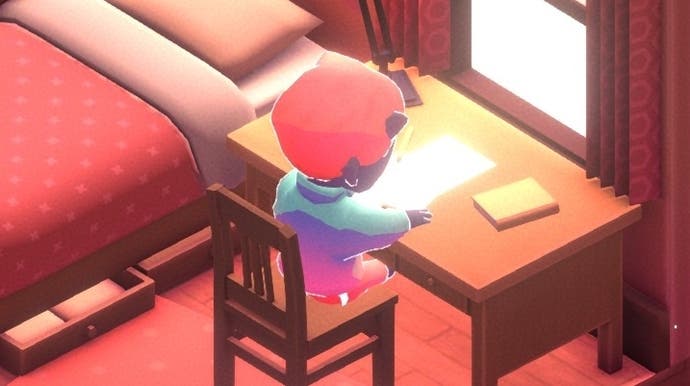"Trolls need kind words the most"
Reflections on a remarkable experiment.
In 2019, a team of three people released a game on Steam as a kind of experiment, an unusual game about anonymously writing and receiving letters from other real people in the world. It was called Kind Words. I wrote about it at the time.
The team, Popcannibal, didn't think it would make much of an impact. Maybe 2000 people would play before it faded away. "We were wrong," co-founder Ziba Scott said in a talk at GDC this week. "It was a huge success.
"People showed up to play in their thousands right away and haven't stopped in over a year-and-a-half now. Players poured their hearts out. It quickly became very personal and dark, and silly, and just everything. All of humanity showed up: loving, angry, confused, messy, suicidal, depressed, giddy, playful - everything. And strangers diligently replied."
Today, Kind Words has more than 5000 overwhelmingly positive reviews on Steam. It has won a Game Beyond Entertainment BAFTA (2020), and millions of messages between players have been exchanged. Some people have played for hundreds of hours.
It's remarkable because there's barely anything to the game. You send and receive letters from a cute, little bedroom, but the letters can only be short, like memos, and you can't respond to someone more than once. You either put your letter out there for someone to respond to, or respond to someone else. That's it. It's a beautifully pure idea.
What's more remarkable is how much people are genuinely willing to share with strangers. "It's not escapism," Scott said. "Writing a request in Kind Words is an act of self-reflection and, sometimes, discovery. Many players have written requests that are their first attempt at publicly articulating something complicated about themselves or their living situation. Distilling your greatest worries into the limited character space we give is a significant emotional exercise."
And on the other side of it, it's remarkable how much other people seem to care. "The average player makes four requests but writes eighteen letters to other people. People are spending hours giving their time."
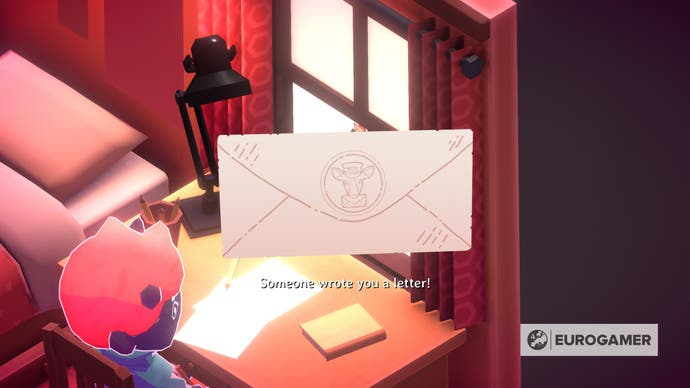
This doesn't sound like the internet we worry about. This doesn't sound like Facebook or Twitter or Reddit (and so on), where people can be the worst versions of themselves - something that's a huge problem in most societies today. And it's here that I believe the real magic of Kind Words lies.
It's not because people don't troll in Kind Words - "the trolls are here, they have been with us since day one," Scott said - but that Popcannibal deals with the behaviour differently.
Number one: it makes it boring to be a troll because you can't argue with people. You can only send one response to someone and no one else will see it apart from them. There's no public record, there are no Likes. "We've very intentionally avoided most quantitative measures that other social media platforms embrace."
"A lot of bad online behaviour comes from people who are having a tough time."
-Ziba Scott
Scott shared the story of someone who puffed out their chest and declared, on the Steam forum, that they would troll Kind Words. "Are you planning to stand in my way?" they apparently wrote. But back they came a couple of hours later, evidently bored, to claim there was nothing going on in the game anyway, which wasn't true: more than 10,000 messages were apparently sent that day. They simply didn't get the attention they wanted.
Number two, and this is my favourite: Popcannibal sees a person behind the behaviour.
Initially, Kind Words had bans, as many platforms do, but it took them away because they fuelled the problem. People wore bans as a badge of pride and complained loudly about being censored.
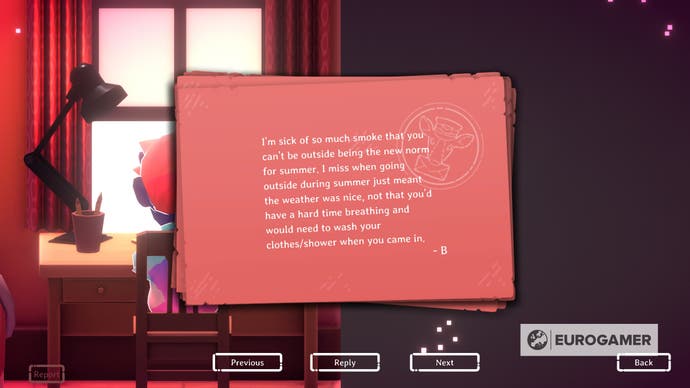
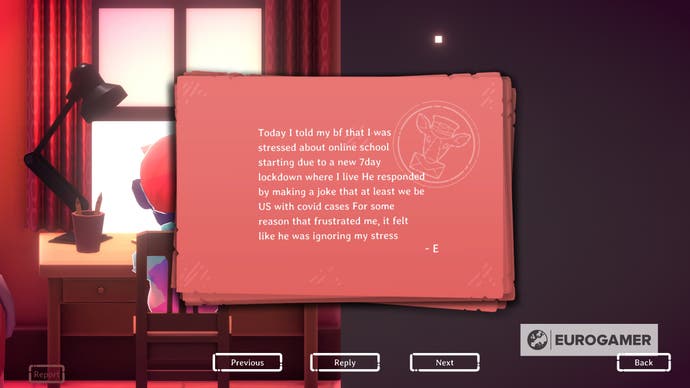
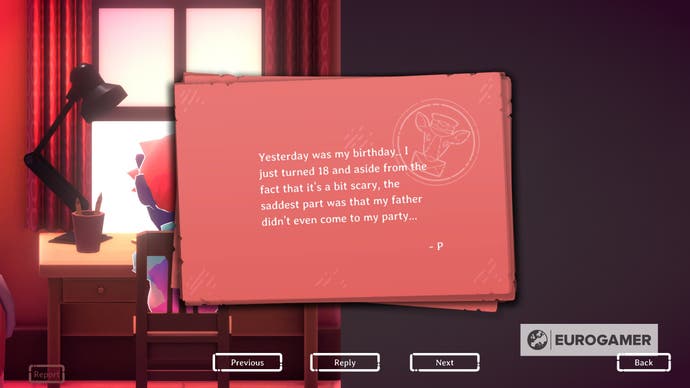
But, more importantly: "[A ban] tells people they're not welcome here, and that's just not true," he said. "A lot of bad online behaviour comes from people who are having a tough time. They've got crappy stuff going on in their lives and they're lashing out. Kind Words is an excellent place to work out those feelings if you can access them.
"We have players who come in and spend an hour writing ten terrible messages to other players and then they turn around and write a sincere request like, 'I have no friends, no one likes me, and I don't know why.'
"Trolls," he added, "need kind words the most."
The result is "real solid troll behaviour" makes up less than one per cent of all the content submitted, and what does come through is "so obvious" it's filtered out automatically, leaving people free to genuinely share things that matter, and to care. Negativity "mostly washes away in this river of kindness", Scott said.
"Maybe there is a general life lesson there about getting back what you put out into the world," he added. "Maybe I'm just drunk on power from being the benevolent dictator of this little world I've set up. But what I want to conclude with is to encourage all you developers out there to find ways to let people support each other in your games.
"Facebook, Twitter and Reddit are terrible models for healthy human interactions so don't do that. We can connect people in other ways. There are different types of constraints and freedoms we can work with to keep online conversations safe without impeding emotional content. If we can structure our online communities better so that they don't amplify disruptions, it will become clear the internet is not full of jerks and we can have nice things."
